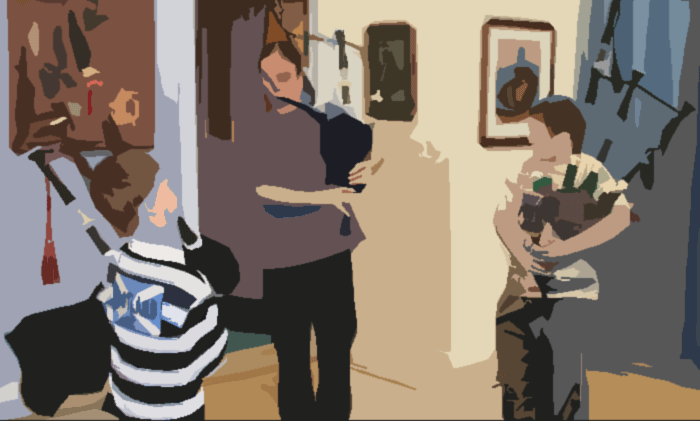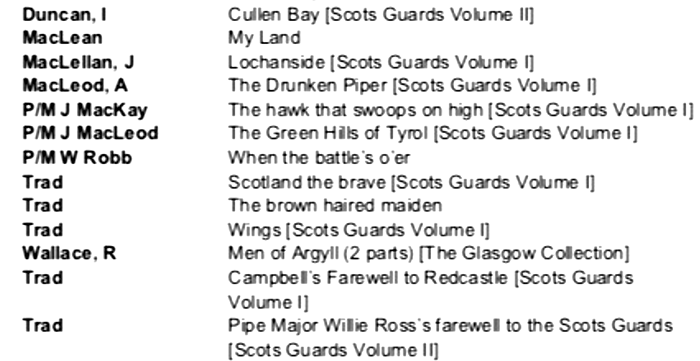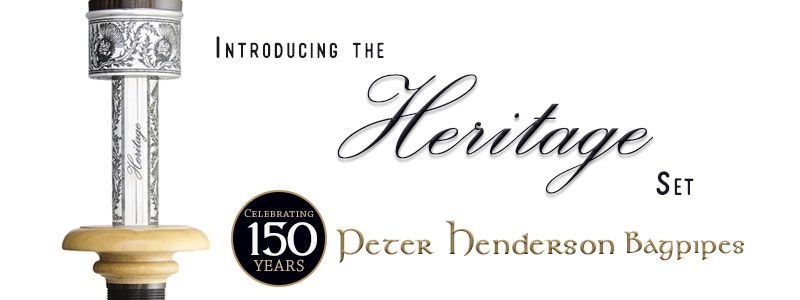
By Our Special Correspondent
Scottish Qualifications Authority (SQA) Bagpipe Performance exams will be commencing at schools and test centres across Scotland from the 10th of February to the 20th of March for National 5 and Higher. Advanced Higher will follow on 27th April to 15th May. It is worthwhile candidates and tutors looking at the newly updated repertoire list.
Click on this link to download the list. Candidates are required to perform a programme on two selected instruments, or one instrument and voice, a full list of instruments and repertoire lists are available under the Bagpipes section on the SQA website.
The most noticeable repertoire changes are the addition to the National 5 programme of slow marches or Gaelic airs and the 3/4 and 4/4 Green Hills of Tyrol and Scotland the Brave.
In Higher grade category there is the welcomed addition of a 6/8 march.
Looking at the Advanced Higher list the only notable change is with Piobaireachd requirement: ‘Advanced Higher programmes must include some sections of, or an entire Piobaireachd, and a March, Strathspey, and Reel. If candidates perform sections of a Piobaireachd it must include the crunluath. Candidates can make carefully timed cuts to keep within the time limits.
‘Candidates may not be able to perform an entire Piobaireachd within the chosen time allocation. Where they perform sections of a Piobaireachd, they must include the crunluath. Candidates may miss out repeats in the March, Strathspey and Reel to accommodate their chosen time allocation on the instrument.’

The time constraints are as follows:
National 5
♦ Perform an eight-minute prepared programme of music on either two selected instruments, or one instrument and voice. This will include performing a minimum of two contrasting pieces of complete music on each of the two selected instruments, or instrument and voice. (Bagpipes for example could perform for a maximum of six minutes and two minutes on instrument two and vice versa, or four minutes on bagpipes and four minutes on instrument two and so on.)
Higher
♦ 12 minute programme between two different instrument, or one instrument, or one instrument and voice, (eight minutes maximum and four minute minimum on each instrument).
Advance Higher
♦ 18 minute programme between two different instrument, or one instrument, or one instrument and voice (12 minute maximum and six minute minimum on each instrument).
Many might misinterpret these changes as a making the bagpipe examinations easier. However it is important to remember that the bagpipe is no longer a pipe band or solo piping pursuit. With the increase of tuition in our schools this is now a classroom instrument reaching more pupils than ever before.
Pupils who are getting their first lesson on the chanter in year one or two of secondary school must be given a realistic chance of making a qualification in year four, being mindful that if taught properly the pupil can take upwards of 18 months to be playing the bagpipe. The National 5 repertoire makes the chances of doing so more achievable.
Remember the National 5 tune list is only guide; there is nothing to stop candidates playing above the minimum standard (i.e. MSRs, hornpipes and jigs.)
Looking at this update of repertoire many of the tunes align to what school bands are performing in RSPBA competition:
National 5 = Novice B Standard
Higher Grade = Novice A
Advanced Higher = Juvenile
Some tips for candidates:
1 Time each of your submitted pieces accurately and submit each with a separate timing.
2 Provide a copy of all your music to your music department to give to the visiting assessor
3 If in any doubt regarding the task level of any of the pieces you are submitting, then stick to tunes on the list provided by SQA.


















